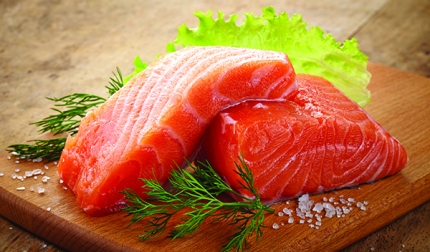Honey has been called the nectar of the gods. For centuries, it has been used topically to heal wounds and fight infections, but its medicinal properties also come from its consumption. Here are four reasons why this sticky, sweet superfood should be a staple in any athlete’s diet.
A Stronger Immune System
In addition to natural sugars, honey contains fatty acids, proteins, small amounts of amino acids, and natural anti-bacterial, anti-viral and anti-inflammatory compounds. When Greek scientists tested 60 honey samples against 16 pathogens, they found that all showed anti-bacterial activity, regardless of their origin. Emerging research show that bees produce a unique protein that they add to the honey, called defensin-1, which could one day be used to develop new drugs to combat antibiotic-resistant infections. And a Swedish study recently revealed that honey is a viable source of “friendly” probiotic bacteria, such as those found in yogurt, including lactobacilli and bifidobacteria. This may also contribute to its therapeutic properties, since probiotics have been linked to better immunity and reduced inflammation, a known trigger of premature aging and disease.
Try it: For the ultimate immune boosting snack stir a spoonful of honey into nonfat organic Greek yogurt or whip the two into ingredients into a smoothie along with cinnamon, natural almond butter, a scoop of raw oat flakes, and frozen pitted cherries.
Antioxidant Power
Antioxidants are particularly important to athletes because they fight oxidative stress—the damage caused by the production of free radicals which build up when large amounts of oxygen are inhaled. When oxygen molecules become unstable (think of a chair with three legs), they attack the DNA in healthy cells in an attempt to balance out. Antioxidants neutralize free radicals, rendering them harmless. A University of California, Davis study found that the daily consumption of honey raised blood levels of protective antioxidants. After twenty-five volunteers consumed four tablespoons of buckwheat honey daily for 29 days in addition to their regular diets, blood samples revealed higher levels of polyphenolic antioxidants, the protective type also found in red wine, tea and dark chocolate. Darker honeys in particular, from buckwheat, sage and tupelo, have been shown to contain a greater amount of antioxidants than other honeys. In one study that analyzed honey samples from 14 different floral sources, University of Illinois scientists found that honey made from buckwheat flowers packed 20 times the antioxidant punch as that produced from sage. Clover, perhaps the most common plant source, scored in the middle of the antioxidant rankings.
Try it: You can find organic, raw buckwheat honey at many health food stores or online at www.weilfarms.com. Drizzle it over fresh, sliced figs, spread it onto 100% whole grain bread or whisk it into a simple sweet and savory salad dressing made from white balsamic vinegar, extra virgin olive oil, freshly squeezed citrus juice, fresh grated ginger, roasted garlic and crushed red pepper.
Enhanced Endurance
Three trials conducted at the University of Memphis Exercise and Sport Nutrition Laboratory found that honey acts as a “time released” fuel to provide athletes with more steady blood sugar and insulin levels over a longer duration. It was also effective at increasing power and speed and improving endurance in competitive cyclists who were fed the all-natural sweetener prior to and at 10-mile intervals throughout a simulated 40-mile race.
Try it: For honey on-the-go stock up on Honey Bunny Certified Organic Honey, packaged in a 13 ounce squeezable pouch with resealable cap. It’s available at www.amazon.com and www.honeybunny.ca.
Sweet Taste, Bonus Health Benefits
If you need to sweeten up your morning oatmeal or post workout smoothie reach for honey over granulated sugar. A San Diego State University study found that compared to the same amount of sucrose (table sugar), rats fed honey showed reduced weight gain, less body fat, decreased anxiety, better memory, improved levels of “good” HDL cholesterol, better blood sugar control, and less oxidative stress.
Try it: For another portable option check out Honibe Honey Drop 100% Honey Candy, made from pure honey with no additives. Enjoy as lozenges or dissolve into hot tea. Available through many retailers, amazon and honibe.com.
Extra Point: Finding your honey
When shopping for honey products look for raw and USDA Certified Organic whenever possible. Honey not marked raw is generally processed and heated, which diminishes its healthfulness and beneficial compounds. And conventional honey bees (non organic) are often treated with antibiotics and fed high fructose corn syrup, which many experts believe to be a contributing factor in colony collapse disorder, the phenomenon of vanishing bees. For more information about honey, bees, and their impact on health and agriculture check out the fascinating documentary vanishingbees.com.
Cynthia Sass, author of S.A.S.S.! Yourself Slim: Conquer Cravings, Drop Pounds, and Lose Inches, is a nutritionist, Board Certified as a Specialist in Sports Dietetics. She is the nutrition consultant to the New York Rangers and Tampa Bay Rays and works with professional and competitive athletes in numerous sports. She can be reached via CynthiaSass.com.





